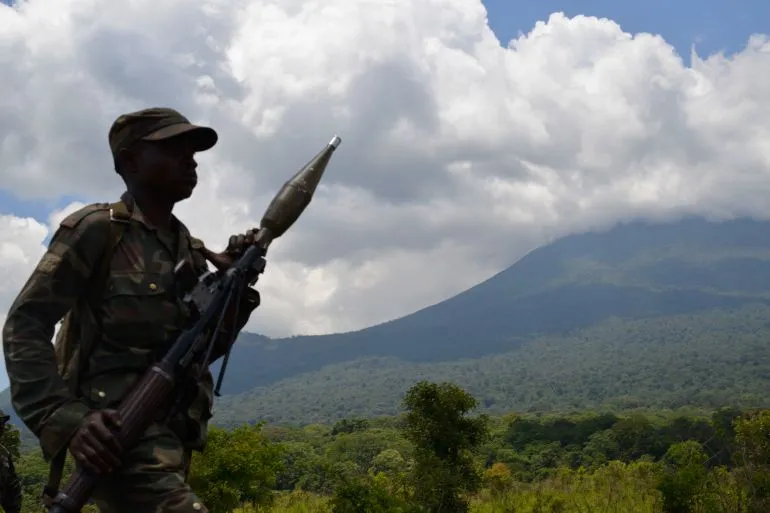DRC: M23 rebels seize new town near border with Uganda as talks drag
3 min read

The M23 rebel group has made significant territorial gains in eastern Democratic Republic of Congo (DRC), seizing the strategic town of Kamandi Gîte on Sunday, November 3. This new development marks an intensification of the ongoing conflict in the region, as the rebels, believed to be backed by Rwanda, continue their offensive.
Kamandi Gîte, located along the shores of Lake Edward, is a critical town due to its strategic position near the border with Uganda. The town’s capture has not only heightened tensions but also raised concerns about the increasing displacement of civilians. Local sources reported widespread forced displacement following the town’s fall, with many residents fleeing to safer areas as fighting intensified.
The M23 rebels clashed with local self-defense militias known as “Wezalendo” (patriots), who are aligned with the DRC’s national army. The skirmishes were fierce, and while the Wezalendo fighters have been instrumental in resisting the rebel advance, the M23 group’s momentum appears to be growing. This latest offensive comes amid a larger backdrop of regional instability, with ongoing diplomatic efforts aimed at de-escalating the violence.
The M23 group, which first emerged in 2012, has been a persistent source of instability in the DRC’s eastern provinces, particularly in North Kivu. While the group initially disbanded, it resurfaced in late 2021, quickly gaining ground and sparking a renewed wave of conflict. The rebels accuse the DRC government of failing to honor previous agreements, while the Congolese government blames Rwanda for supporting the group, a claim that Rwanda denies.
Diplomatic talks between DRC and Rwanda have been ongoing under the framework of the Luanda Process, which is being mediated by Angola. Despite these efforts, fighting continues to rage in eastern DRC, as both sides struggle to find common ground. The next round of negotiations is scheduled for November 16, with hopes of reaching a long-term solution to the crisis.
One of the key points of contention in the talks is the issue of disengagement and the neutralization of the Democratic Forces for the Liberation of Rwanda (FDLR), a militia group active in the region. The FDLR is composed of fighters linked to the 1994 genocide in Rwanda, and their presence has been a major source of tension between the two countries. Both Rwanda and the DRC have reportedly agreed on a plan to address the threat posed by the FDLR, but significant hurdles remain in implementing such measures.
The situation in the eastern DRC remains volatile, with the humanitarian crisis worsening as civilians bear the brunt of the conflict. Displacement, violence, and a lack of basic necessities have created severe hardships for thousands of people. Local and international organizations continue to call for urgent humanitarian aid to address the growing needs of the affected populations.
As the M23 rebels advance and negotiations between the DRC and Rwanda continue, it is clear that the road to peace in the region remains fraught with challenges. The involvement of international mediators, like Angola, is critical, but it is unclear whether the talks will lead to lasting peace or if further military action will continue to destabilize the region. The outcome of the November 16 talks will likely be pivotal in determining the future trajectory of the conflict and the prospects for regional stability.